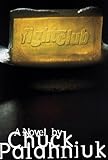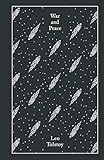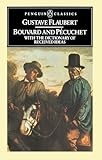I met Chuck Palahniuk in Pasadena, California, at a signing for his latest book, Adjustment Day. When I arrived, 30 minutes ahead of time, there was already a long line. Young girls and boys were standing there with the yellow book in their hands, waiting to see him. Everybody was particularly excited because they knew that he was not only going to sign books but also talk with them individually and take some pictures with them, writer and reader posing in fighting positions. “He really wants to give back to his readers,” one of the girls at the log-in point told us. I waited in line, reading and talking with the others. Some came from North Hollywood, some from Orange County. “What about you?” I’m asked. Palahniuk’s fans want to know each other, they discuss when and how they read Fight Club, they joke and bicker about its real meaning.
One of my critical theory graduate friends explained to me once, “The first rule of fight club is nobody knows what Fight Club is about–not even the author.” Thus, if you ask Chuck Palahniuk, he might answer: It’s a romance. It’s just The Great Gatsby updated a little.
At the end of Palahniuk’s tour for Adjustment Day, I emailed with him to chat about his books and the psychology of his main characters.
The Millions: Tyler from Fight Club and Talbott from Adjustment Day can be psychopaths, but they also say things that all of us have thought at least once in our lives. How do you construct the psychology of your characters? Do you think that we can consider them the Raskolnikovs of our time?
Chuck Palahniuk: Talbott has no child, no heir or apprentice, and he’s trying to pass along all the wisdom he believes he’s acquired in his lifetime. This is what any responsible parent does, so does it make him a psychopath? Likewise, Tyler is trying to empower another person with the only skills Tyler has. They both might be wrong-headed, but their motives are sound. Neither is malicious, so I’d say neither is a psychopath. Most likely that makes me a psychopath. I’ll embrace that idea. As for either one being Raskolnikov, I can’t say because I’ve never read War and Peace.
TM: There’s a sense that all your characters are so fragile and scared, and angry with society, and all they look for is “one something that explains everything.” Do you feel that in our society there is an avoidance of complexity and conflict?
CP: Please, let’s not kid ourselves. I divide my life between two states that have both legalized marijuana. Not to mention that I staggered through my 20s in a cloud of dope smoke, never daring to write a word. Opiate abuse is soaring. We’re so bombarded with complications and conflict that our lives make a Kafka story looks like a cute kitten video. We’re starving for the One Big Idea that will simplify our world and unite us. What a relief that we have Jordan Peterson to show us the way, at last.
TM: One of the most interesting themes of your work is the issue of power—the idea that power is not about controlling the body but controlling the mind. Are you drawn to the topic by an influence of French philosophy, or has it been shaped primarily by your own life experiences?
CP: Experience is our first teacher. Academia merely gives language to what we’ve lived. Me, my background is journalism so I’m always surveying people and looking for patterns between their seemingly disparate lives. These larger, shared patterns I try to illustrate with fictional stories. The last and most abstract way of communicating real life stuff is via the buzz words of Foucault and Derrida and Heidegger.
TM: You said that Adjustment Day is a rewrite of Gone with the Wind. In the book the characters discuss the repetition of the American narrative model and the importance of breaking with tradition. How is this important for you as a writer?
CP: Once you recognize the myth you’re retelling, then you’re truly free to cleave unto it or to violate the myth. So many groups are calling for civil war, or self-segregating, it seemed like a new American civil war novel was needed.
TM: One of your characters talks about Flaubert’s Bouvard et Pécuchet, comparing the difficulty of finding fulfillment in his life and even to Kurt Cobain’s life. Do you think that parable is more relatable today than in the time of Flaubert?
CP: My guess is, yes, it is more applicable today. We have so much more social mobility. Our values are more fluid. And with more options we’re free to experiment and avoid our Dasein. Each of us knows her or his destiny, but we will move heaven and earth to avoid getting to it. Having said that, damn, I could use a Percocet.
The post Does It Make Him a Psychopath? The Millions Interviews Chuck Palahniuk appeared first on The Millions.
from The Millions http://bit.ly/2UlCgH6





Comments
Post a Comment